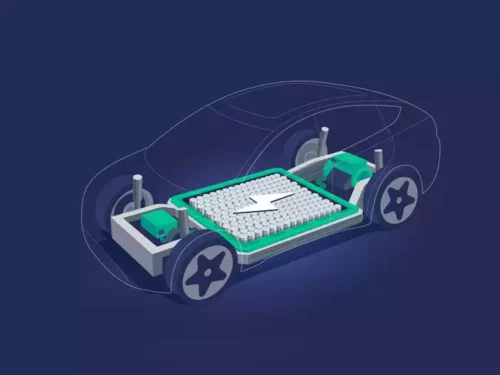Researchers at the University of Maryland unveil a breakthrough in EV battery technology, offering enhanced safety with solid-state designs.

Batteries are pivotal for electric vehicles (EVs), influencing design, range, and efficiency. They shape charging infrastructure and environmental impact, with their cost and weight playing critical roles in EV viability and market adoption. All-solid-state batteries have the potential to make cars safer compared to existing electric or internal combustion vehicles, though finding a solution to their challenges was no easy task.
Researchers at the University of Maryland have developed a new technology to enhance the safety and energy storage of upcoming EVs and other devices by reducing the risk of battery fires. The research suppresses the growth of lithium dendrites, harmful branch-like structures in all-solid-state lithium batteries, obstacles that previously impeded the broad adoption of this promising innovation.
A new “interlayer” design for batteries has been created by the researchers to hinder dendrite formation, potentially leading the way for practical solid-state batteries in electric cars. The research team highlights that their approach stands out due to stabilising the battery’s interfaces between the solid electrolyte and the anode (where the battery receives electrons from a circuit) and between the electrolyte and the cathode (where the battery releases energy).
In this innovative battery design, a fluorine-rich layer is introduced to stabilise the cathode end, and the anode’s interlayer is enhanced with magnesium and bismuth, effectively preventing the growth of lithium dendrites. “Solid-state batteries are next-generation because they can achieve high energy and safety. In current batteries, if you achieve high energy, you’ll sacrifice safety,” Chunsheng Wang, a researcher at the University of Maryland mentioned.
Solid Power is gearing up to test the innovative battery technology with aspirations to introduce it to the market by 2026. The researchers indicate this move is to evaluate its commercial viability.






